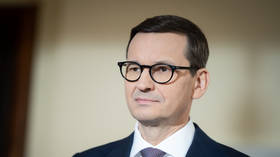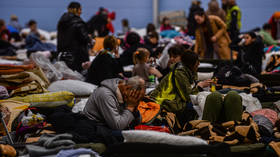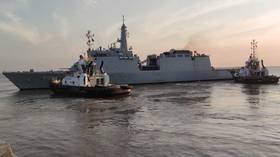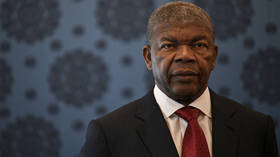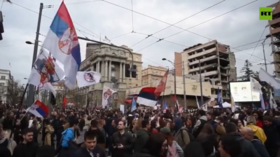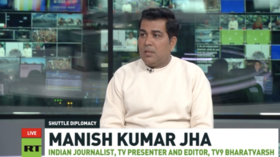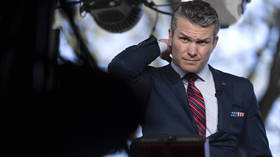Russia sanctions EU leadership
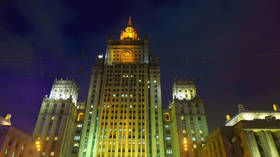
The top EU leadership has been banned from entering Russia in response to the bloc’s “unfriendly actions,” which, as the Russian Foreign Ministry claims, are “driving the relationship with Russia into a deadlock.”
In a lengthy statement, issued on Thursday, the ministry said that the EU sanctions policy, which has been introduced in response to Moscow’s military operation in Ukraine, “oversteps all limits.” The intention of the EU, the statement says, is clear: “To force Russia to renounce its vital interests.”
“The EU’s actions are not only driving the relationship with Russia into a deadlock, but are similarly jeopardizing the wellbeing and security of its own citizens, as well as the stability of the global financial and economic system,” the ministry said.
Therefore, Moscow, on the basis of reciprocity, “is significantly expanding the list of representatives of EU Member States and institutions who will be denied entry to the Russian Federation.”
The ministry specified that the restrictions would apply to the “top leadership of the EU, a number of European commissioners and heads of EU military bodies, as well as the overwhelming majority of members of the European Parliament that have advanced anti-Russian policies.”
The blacklist also includes government and parliament members of some EU member states, as well as public and media figures who are, from Moscow’s point of view, “personally responsible for promoting illegal anti-Russian sanctions, inflaming Russophobic sentiments, and infringing on the rights and freedoms of Russian-speakers.”
The relevant note has been handed to the Delegation of the European Union in Moscow, the ministry said.
It concluded the statement by reaffirming that “any further unfriendly action by the EU and its Member States will inevitably be met with a forceful response.”
The statement echoes Thursday’s speech by Russian President Vladimir Putin, who said some Western politicians are allegedly prepared to sacrifice their citizens’ interests in order to “enjoy the good graces of their overseas master and overlord [by which he means the US].” He also said the sanctions that are being imposed on Moscow now were “prepared in advance” and “would have been imposed in any case.”
Considering the fact that the West has been imposing restrictions against Russia for many years, there is no point thinking that this approach would change any time soon, Putin emphasized.
Since the beginning of Russia’s military offensive in Ukraine on February 24, the EU has announced several rounds of sanctions personally targeting President Vladimir Putin, top government officials, and businessmen. Brussels banned iron and steel imports from Russia, outlawed the sale of aircraft, spare parts and equipment to Russian airlines, as well as the supplies of goods and technological equipment for the oil, aviation, and space industries. EU citizens have been banned from investing in the Russian energy sector. Dozens of EU companies have halted or stopped operations in Russia.
Moscow considers the move unlawful and unjustified and has imposed its own counter measures.
Russia attacked its neighbor in late February, following Ukraine’s failure to implement the terms of the Minsk agreements signed in 2014, and Russia’s eventual recognition of the Donbass republics in Donetsk and Lugansk. The German and French brokered protocols had been designed to regularize the status of those regions within the Ukrainian state.
Russia has now demanded that Ukraine officially declare itself a neutral country that will never join the US-led NATO military bloc. Kiev insists the Russian offensive was completely unprovoked and has denied claims it was planning to retake the two republics by force.
